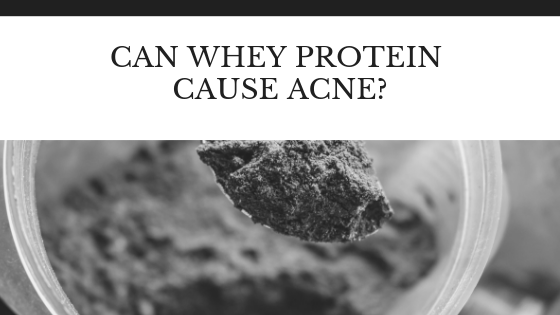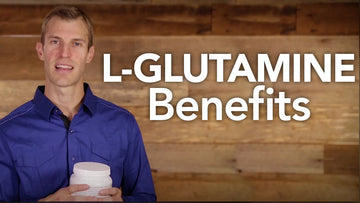

Does Whey Protein Cause Acne? Everything You Need To Know
Table of Contents
Find out if whey protein could be causing your acne. Get all the facts you need to know about the link between whey and skin breakouts.
Whey protein is a protein found in dairy products, and it is extracted from milk. It is one of the most abundant protein sources in the body and is also known as a “bioactive protein.” It plays a vital role in muscle growth, weight loss, and blood sugar control.
It has been associated with numerous benefits for the body, such as weight loss and muscle growth. However, some people wonder if this protein causes acne or makes acne worse. If you too are wondering if whey protein causes acne or not, this blog is for you!
In this blog, we will discuss how whey protein impacts your skin and hormones and how you can choose an effective whey protein supplement that does not cause acne.
What is Whey Protein?
- Whey protein is a dairy product naturally produced by the fermentation of milk.
- It is a highly-digestible protein and contains essential amino acids and vitamins.
- People use whey protein powder as a dietary supplement to improve their body’s protein intake or to increase lean body mass.
- The health benefits of whey protein powder include increased satiety and better gut health.
- It can help with weight loss, muscle development, and improved overall health.
Is Whey Protein Linked to Acne?
Yes, whey protein is commonly linked with acne. It's a dairy product that is formed by the protein in milk, and it contains amino acids, vitamins, and minerals. Having high levels of these nutrients can help with skin health and acne.
Studies have linked whey protein intake to acne. This is because whey protein is acidic, which can cause skin inflammation and acne. Research has also shown that whey protein causes insulin resistance and increased sebum production, both of which can lead to acne. However, not all studies support the link between whey protein and acne. A 2018 review of the literature concluded that there wasn't enough evidence to suggest whey protein supplementation could be beneficial for people with acne-prone skin.
To avoid breakouts when consuming whey protein, people should watch their dairy intake and limit the amount of dairy products they consume per day. Also, they should consider taking dairy-free supplements such as amino acids or collagen powder instead of whey protein powder.
Finally, they should cleanse their face gently with an acne cleanser and tonic prior to applying any product containing dairy ingredients.
How Does Whey Protein Impact Your Skin and Hormones?
Whey protein can have a positive impact on the skin and hormones due to its high concentration of essential amino acids. These amino acids are important for the production of collagen, elastin, and keratin which are all required for healthy and youthful looking skin.
Whey protein has been shown to have a positive effect on skin health and hormones. It has been hypothesized that whey protein's high concentration of amino acids, including the branched-chain amino acid leucine, may be responsible for its effects on both skin and hormones. Leucine is thought to stimulate the production of anabolic hormones such as growth hormone, which can help improve skin elasticity, reduce wrinkles, and promote collagen synthesis.
The Relation Between Whey Protein and Acne
The relationship between whey protein and acne is a complex one, as it involves the interaction of multiple factors. Whey protein, commonly derived from dairy products, is a popular supplement among athletes and bodybuilders due to its high levels of branched chain amino acids (BCAAs). While these BCAAs can be beneficial for muscle growth, they can also contribute to an increase in circulating testosterone levels, which has been associated with increased sebum production and the development of acne.
Studies have suggested that whey protein may be a contributing factor to acne due to its high levels of insulin-like growth factor-1 (IGF-1). IGF-1 has been linked to sebum production, which may contribute to the development of acne. Additionally, whey protein can act as an antigen, leading to inflammation and an increase in immunoglobulin E that can aggravate acne symptoms.
How To Choose Safe & Effective Whey Protein Supplement
- When choosing whey protein supplements, it's important to read the nutrition facts panel and the ingredients list on the product label.
- Look for whey protein products that are free from artificial sweeteners, coloring agents and other ingredients. This will help ensure you're getting a healthy and safe supplement that provides essential nutrients and amino acids without any added chemicals or harmful substances.
- When choosing whey protein powder, consider the source of the protein and the manufacturing process used to make it. Start with protein supplements made from dairy sources, such as whey protein isolate or whey protein concentrate. These protein sources have been verified by third-party organizations such as NSF International and contain no artificial growth hormones (IGH).
- Choose whey protein powder low in lactose and carbohydrates. This is important for individuals with lactose intolerance as well as anyone following a dairy-free diet. Whey protein supplements can provide beneficial nutrients without the addition of unnecessary sugar or carbs.
Answers You Want To Know
- Does whey protein cause acne for everyone?
No, whey protein does not cause acne for everyone. Acne is caused by a variety of factors such as genetics, hormone levels and skin type, so some people may be more prone to breakouts than others. However, if you notice that your skin is breaking out after consuming whey protein, then it is best to switch to a different type of protein in order to avoid further skin issues. Plant-based proteins such as pea protein, hemp protein, and rice protein are great alternatives and should help to reduce the breakout risk associated with whey protein.
- How do you prevent acne when taking whey protein?
If you're looking to prevent acne when taking whey protein, there are a few things you can do.
- Firstly, start by incorporating whey protein into your diet slowly and gradually. This will help minimize any potential breakout since the body needs time to adjust and adapt to new dietary changes.
- In addition, make sure to consume plenty of water throughout the day to flush out toxins and maintain proper hydration levels. Taking probiotics can also be beneficial in aiding with digestion and helping the body regulate hormones that can lead to acne-causing inflammation.
- Another way to reduce inflammation is by adding other natural ingredients like zinc, vitamin E, and omega fatty acids into your regime. These ingredients can help reduce redness and irritation associated with acne, as well as help nourish skin cells for healthier-looking skin.
- What ingredient in whey protein causes acne?
Whey protein is derived from dairy and contains lactose, which can be a culprit for acne breakout in some people. That said, the lactose content of whey protein may not cause acne in everyone and it depends on the individual's tolerance level and skin type.
- How do you prevent acne when taking whey protein?
- If you’re taking whey protein and want to prevent acne, one of the best ways to do so is by ensuring that the supplement that you’re taking doesn’t contain potential skin irritants like dairy, sugar, gluten, or soy.
- Secondly, it is important to stay hydrated when consuming whey protein. When your body is dehydrated, it can cause inflammation and acne breakouts. So make sure to drink plenty of water and stay hydrated.
- Thirdly, try to avoid touching your face with dirty hands before or after taking whey protein. This will help minimize bacteria and dirt transfer to your skin, which can lead to acne breakouts.
- Finally, it is important to cleanse your skin regularly using a gentle cleanser and avoid harsh soaps as they can strip the natural oils from your skin and trigger inflammation and acne.
- How do I avoid acne on a high protein diet?
Acne is caused by an overproduction of sebum, which is a natural oil produced by the skin. Sebum is created in response to the hormones estrogen and testosterone. When these hormones are out of balance, the sebum production can increase, leading to acne. One way to avoid acne on a high protein diet is to keep your calorie intake under control while still getting enough protein. Shoot for around 30-35 grams per day, which will provide the requisite amount of protein.
Words From Us
Whey protein is a supplement that has been proven to be effective in promoting weight loss and muscle growth. However, there are many factors that can cause acne as well as whey protein and it’s important to be aware of these factors. If you notice any skin-related changes after using whey protein, it’s recommended to consult a dermatologist for further advice and treatment. The above-mentioned points will help you understand the relationship between whey protein and acne and choose an effective supplement that works for your body type.



















